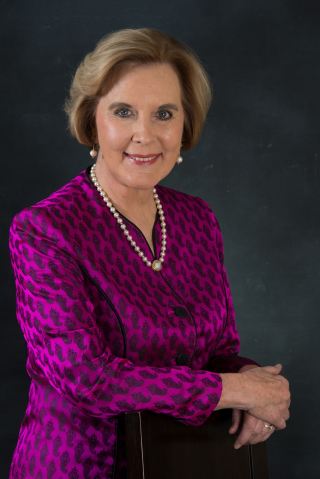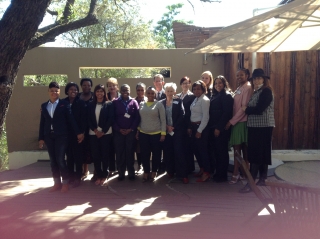You don't really want that job, do you?
BY Annelize van Rensburg director of Signium Africa (previously Talent Africa), a leading South Africa-based executive search and talent management company servicing sub-Saharan Africa.
Who needs a top job as a senior manager or executive? Why bother? It’s only an annual salary of R1,5 million or more. If they want you, they’ll see your potential. Just rock up for the interview. You’ll be fine.This attitude alone is probably enough to wreck any chance of landing a top job, but just to be sure you can always adopt some of the self-destructive behaviours known to kill a candidate’s interview prospects.You can …
1. Turn up late. Blame the traffic or bad-mouth the location, especially if it’s at the hiring company’s head office.
2. Fail to prepare. Don’t even check the corporate website. Ensure the interview panel know you have done no ‘homework’ by confusing the recruiting company with a competitor or by asking questions that display ignorance of the company and its industry.
3. Dress to fail. Jeans, scruffy shoes and an open-neck shirt should do it, or perhaps high heels, a revealing top and a micro-mini.
4. Display self-interest. At the first possible moment ask about pay and perks.
Then ask about how much paid leave you can expect.Even senior people scupper their chances through crass errors like these. They are looking for seven-figure salaries and might be experienced personnel in their 40s or 50s, but still self-destruct.If you really want the job, you avoid obvious pitfalls.The biggest key is proper preparation.Research the recruiting company (inside out). Read its financial statements and annual reports. Make sure you know the names of the CEO, executive team and board members. Prep for the interview by driving the route to the venue ahead of time. This ensures you know the way, the traffic and the time commitment.Know your CV backwards.
Memorize key dates and bring along extra hard copies to ensure all panel members have your CV. Make sure all information is correct and up to date. Tell no lies!Always display passion and a positive attitude to life in general and your career in particular. Infuse the panel with your energy. Dead fish do not get top jobs.Share with the panel concrete, well-considered examples of strategic and operational achievements. Punt team efforts and give credit to peers and teams when reviewing career highlights. Be honest.Ask questions that display an interest in the recruiting company, its industry and the position you are targeting. Strategic issues and corporate culture are favoured topics.
Leave questions about pay and perks until later.Show loyalty to current employers or at the very least display restraint and discretion. Put the focus on new opportunities rather than past disappointments.Dress appropriately. To be safe, dress up, not down.Show respect. Switch off that cell phone. This interview is more important than your dinner plans.Always indicate that you take responsibility and make yourself accountable. It might be tempting to blame others when discussing career challenges, but leaders show resilience. They have ‘broad shoulders and turn problems into opportunities.Do all this and you have a shot at that dream job.
www.signium.co.za
How to manage your career in a corporate crisis
Your company is embroiled in a reputational crisis of such magnitude it could bring down the business and with it your previously stellar career as a senior executive… what do you do to protect your own good name?
It’s no idle question. Some huge organisations – from BP to Ford to Volkswagen to KPMG – have recently been in the reputational crosshairs and in the era of non-stop communication, whistle-blower hotlines and tighter regulation more will follow.US estimates indicate 19 out of 20 US companies are unprepared or under-prepared for the management of reputational crisis.
Even the PR kingpins at Bell Pottinger appeared totally taken aback when scandal erupted on their own doorstep.We can therefore assume most local firms are at least under-prepared and so are their top executives.However, some lessons have been learned over the years and broad guidelines put in place; though they generally relate to corporate rather than individual executive responses.In many instances, however, advice to corporates can be reworked into advice for individuals.Among tips for corporates is to anticipate crises, conduct an audit of ‘vulnerabilities’, have a plan in place ahead of time along with agreed procedures, nominate approved spokes-people, brief them on what may or may not be said, and try to appear helpful and ready to communicate rather than go to ground.Individuals can follow a similar strategy.Personal vulnerabilities are shaped by executive roles and divisional responsibilities.
So, if you are CFO, make sure you are exceptionally well informed on hot financial media issues (e.g. transfer pricing or base erosion profit shifting across borders).If your division engages in activities that might cause pollution, make sure you are on top of all environmental developments, while insisting on rigorous controls.Prudent personal preparation includes reinforcement of your own reputation for ethical dealing.Don’t simply talk the talk. Walk the walk. Make good ethical practice an integral part of your approach to your work and personal conduct.Involve yourself with initiatives undertaken buy professional and industry bodies to strengthen ethical standards. Include in your personal network any industry figures, academics or professionals known as good governance champions.
Tap these ethical gurus for updates on latest practice.Speak on ethical issues on industry occasions, though this just might boomerang if your company is caught red handed.Remember, if you are on the Exco, you are accountable. Senior executives are frontline PR people, like it or not.If you are confronted by difficult questions (from media or staff) don’t become defensive.
‘No comment’ is code for ‘We’ve something to hide’.You could perhaps say the issue is under review and nothing can be said until enquiries are complete.Maintain communication with staff, suppliers and associates, even if you can only generalise and request patience.
Refusing to take calls does not help.When communicating – even privately or via social media – never impugn your own organisation.You can say you share public concern and indicate sympathy for those affected by the alleged lapse in standards, but joining the chorus of criticism strikes the wrong note and positions the executive as a turncoat.As the crisis unfolds, the executive has to face a critical question: Do I resign or stay? The answer depends on the nature of the scandal, the degree of perceived involvement, the reactions of corporate and industry peers, and perhaps professional and legal advice.If an individual is well known as a fair, honest and ethical professional, damage limitation is possible, though even totally innocent parties can be tainted by association to some degree.Individuals may face extra scrutiny from their peers, investors and prospective employers.
A well-prepared executive with a sound personal reputation should be able to withstand the scrutiny, though living with the aftermath of scandal can make huge demands on those concerned.Executives who cope best are those who know their consciences are clear and did everything possible to uphold ethical standards.
WHERE ARE SOUTH AFRICA’S POTENTIAL WOMEN DIRECTORS?
They are in South African companies and industries right now, although they may not be part of traditional networks and are unlikely to be present at the higher levels of management in the same numbers as men. It is for this reason that BPW SA and the Department of Trade & Industry (the dti) have partnered in an unrivalled “Women on Boards” director development programme to create a pool of female leaders in SA who are excellently trained and are therefore highly sought after by Boards.
Most people today have no knowledge about the makeup of corporate boards, even in the companies they work for. These people would be surprised to learn how little diversity of thought and experience exists in the corporate boardrooms and executive suites of South African businesses. Why should you care about board composition? Boards of directors make decisions that can impact you, your community, and the country. That’s why it’s important that membership on corporate boards be representative of a company's constituents.
Boards of directors choose CEOs. They make decisions about executive compensation, whether to buy, sell, or merge with other companies, where corporate offices close and relocate, and how much priority a company gives to issues other than profits, such as social responsibility.
Our Women on Boards programme will give you the expertise and exposure needed to be part of the right networks. It is an eight-part program — strategically placed over the course of 8 months, due to the complexity of the material — equips women with the knowledge and tools needed to elevate themselves to the C-suite and beyond. In a supportive and highly interactive atmosphere, an impressive roster of top government and corporate experts will guide skilled female executives through a rigorous program of intensive classroom instruction, case studies and simulations. Every element of the program is focused on strengthening and broadening the leadership talents of the participants and delivering positive results for their companies and organizations. They will improve their understanding of the responsibilities of board membership and develop the skills and strategic insight needed to become a more effective director. They will improve their understanding of board governance while heightening their financial literacy and increasing their understanding of relevant legislation. Amongst others, specialist training is also provided by the Johannesburg Stock Exchange (JSE) with regard to corporate governance and understanding of JSE terminology and the Commonwealth Business Council (CBC) (London) who will impart their expertise on personal and reputational risk. The dti will convey their expectations of board members and corporate experts will present, and execute simulations, on media and presentation skills to enhance leadership effectiveness. The programme is certified by the dti.
For more information, please visit our website at www.bpw-jhbsa.co.za .or contact This email address is being protected from spambots. You need JavaScript enabled to view it. or 011 794-4991.
Conversion Online to provide world class Internet strategies
Conversion Online to provide world class Internet strategies
Liesbeek House, River Park, Regus Office Park Cape Town, 21st September 2009 Nicholas Leck, MD, today announced the launch of Conversion Online Strategy Consulting. Conversion will provide strategic Internet advisory services and training to organizations, business and individuals wishing to develop a strategy to save costs and utilize the Internet successfully to compete globally and locally.




